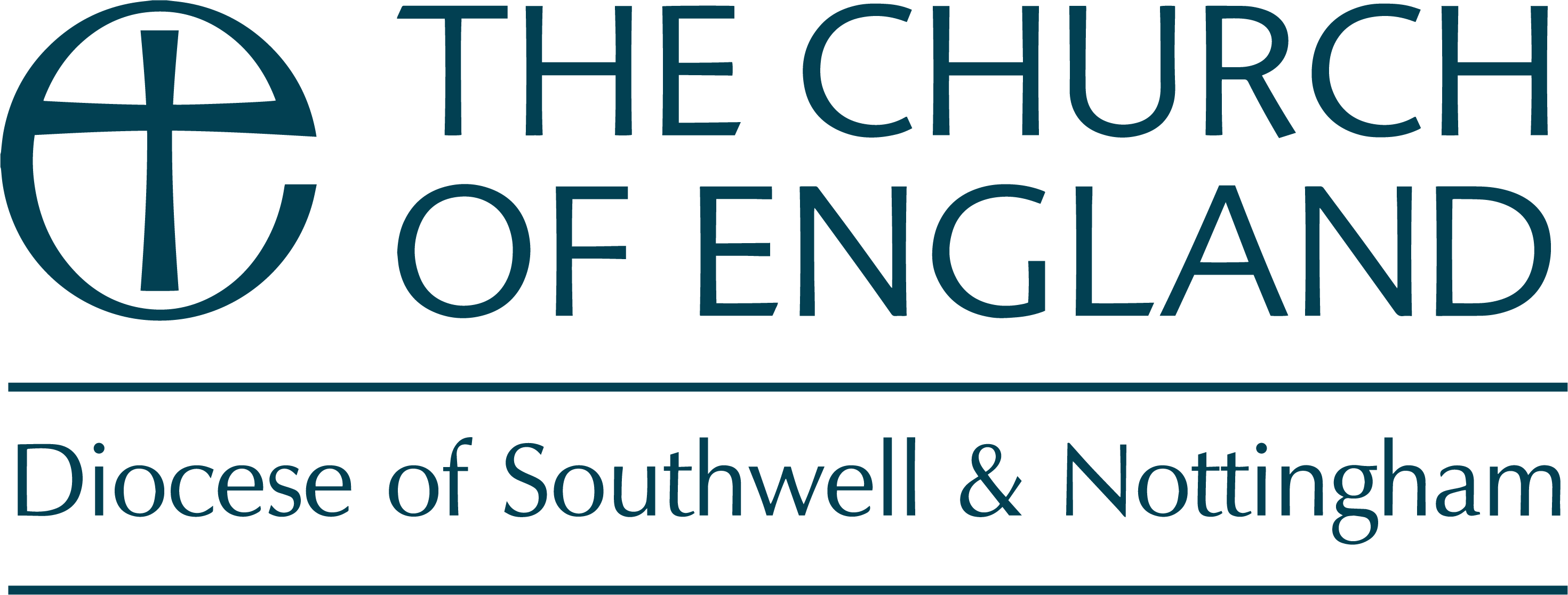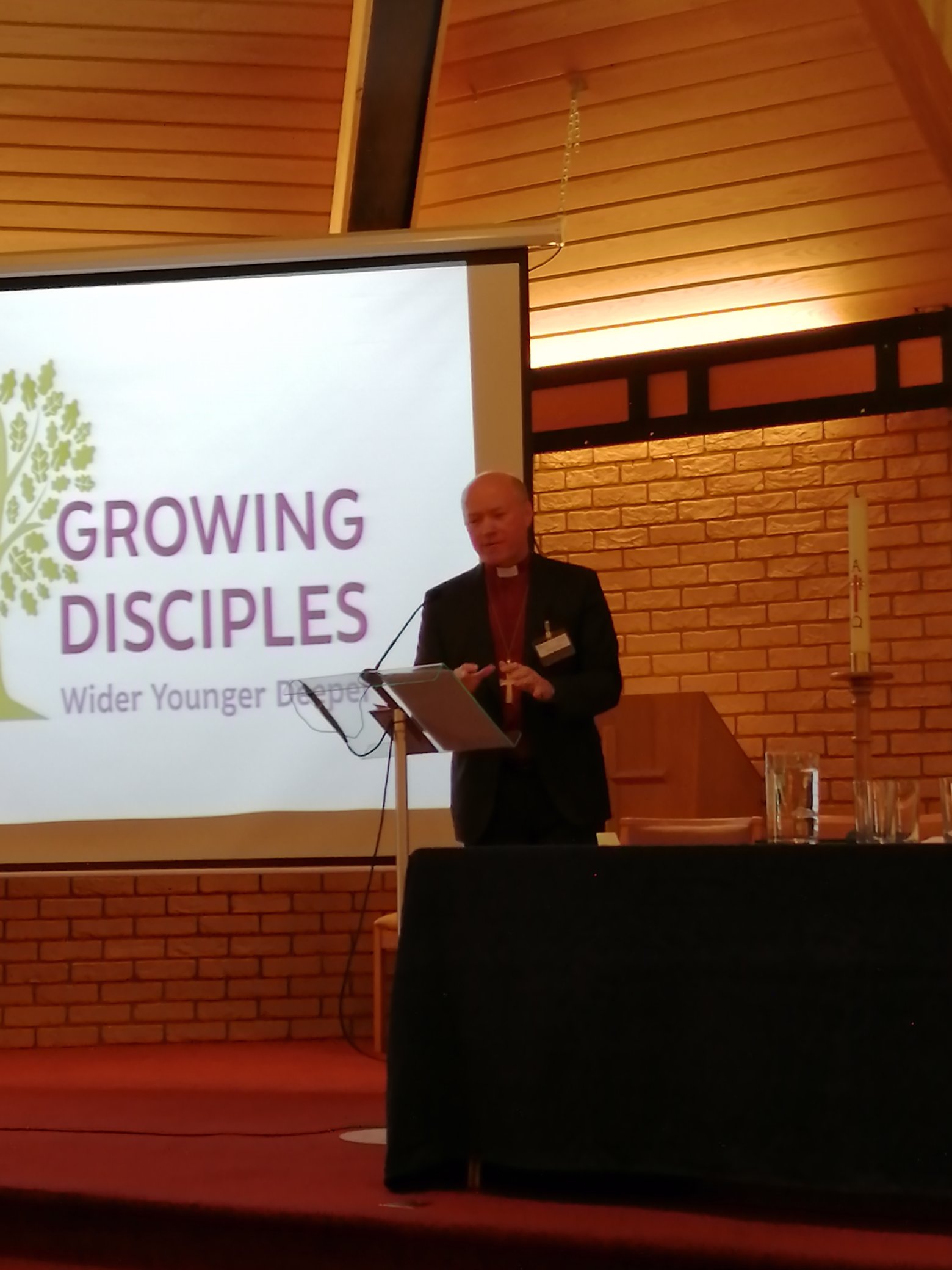Bishop’s Address to Diocesan Synod
Saturday 1st October 2022
We cannot possibly meet as Diocesan Synod on this first occasion in the reign of King Charles III without giving thanks to God and paying tribute to the extraordinary life and reign of Her Late and Lamented Majesty Queen Elizabeth II.
The word ‘momentous’ is sometimes overused. It is meant to describe an event of lasting significance, often something unexpected that captures the attention of the whole world. The death of our Queen was not wholly unexpected and yet the sense of loss and shock that many of us felt, reverberated around the world. It was an indication of the significance of her long life and reign. And we will all remember where we were when we heard that she had died. By God’s good and strange providence, I was opening the door of Bishop’s Manor to the Lord Lieutenant, Sir John Peace and his wife Christine, at the very moment we both received the news. We were able to share our immediate sense of grief, to comfort each other, recognising the significance of this moment, and above all to pray together.
The Queen has been a constant presence in our lives and nation spanning an extraordinary period of change. When the bells across the diocese rang out their muffled tones in 1952 to mark the death of King George VI, and proclamations were made in the city and across the county announcing the accession of Queen Elizabeth, Bishop Russell Barry was in the 11th year of his ministry as Diocesan Bishop. Like most senior leaders in society at the time, he was born at the height of the Victorian Era.
To some extent, the Queen’s reign was a bridge between the still clear memories of the late 19th century and Britain’s unique place in the world and the third decade of the 21st century, when we are still trying to work out what being modern-Britain really means. It is perhaps the greater longer-term crisis facing us as a nation. Though our attention right now, our worries and fears, are focused on the financial crisis coming out of a global pandemic and with a terrible war in central Europe, involving a nuclear power, where food security and energy costs are affecting everyone, but especially the poorest and most vulnerable in our world.
It is a very difficult time to lose such a beloved Queen who has been a stable and ever hopeful presence in our lives and nation. As a diocese we pledge ourselves to pray for the King and all who serve under his authority, and for the whole Royal Family, especially the new heir, Prince William of Wales.
For the Church of England, of which the Queen has been our Supreme Governor for 70 years, we have been reminded of our particular spiritual responsibilities in the life of our nation, not to the exclusion of other denominations or other faiths, but in being a focal point for many people across every community, seeking to find comfort and hope in a time of sadness and uncertainty about the future.
It’s been moving to hear how some of our churches have welcomed people to times of reflective prayer as well as more formal services of tribute. There is much more genuine spiritual searching than the humanist society would ever want to acknowledge. And most people of other faiths want the Christian Church to be confident and clear in its message and ministry, because it contributes significantly to a society where their religious cultures and traditions find a respectful place.
For all the blessings of the Queen’s long reign, it is the character of her life that has left the deepest impression. We know, and commentators could not avoid, the reality that her life of service was shaped above all by her personal faith in Jesus Christ. And living with all the challenges of this present moment in history, I believe her life of faith can and should be an inspiration to the Church.
We can make a decisive contribution to shaping the values and vision for modern Britain. Yet it will not be primarily through our public proclamations (though they do matter), but through the life of every Christian and every local church, learning to walk in the way of Jesus.
This is why Growing Disciples is remaining at the very centre of our vision and strategy as a diocese. The Queen’s own discipleship can be an example and inspiration to us as we continue the task of refreshing our vision and planning for 2030 and beyond. But I think she would be the first to have said, no doubt with simple directness, ‘please don’t follow me, follow Jesus’ example.’
I commend to you a small book that Mark Greene wrote for the Platinum Jubilee, called the Queen’s Way. He explains that it was in 2015 that he asked God a specific question: “Please show me someone in the public eye who is an outstanding whole-life disciple of Jesus, someone whose faith shapes all they do and say.
‘Queen Elizabeth,’ was God’s answer. Swift, sure, weighty.
Since that day it has become ever clearer to me that Elizabeth was a gift from God – to our nation, the Commonwealth, and indeed the global community. A beacon of humility, grace, astuteness, good humour, generosity and deep faith – God’s woman, God’s servant, God’s Queen.
Like many, I suppose, I’d never been a ‘royal-watcher’. I admired the Queen, and appreciated the clarity and warmth with which she spoke almost every Christmas of her trust in Christ and the difference he made to her life. But I hadn’t thought deeply about how God might be working in and through her. Yes, she was a remarkable woman and a remarkable monarch, but what I came to see, and had confirmed by others who knew her better, was that she was first and foremost a remarkable disciple of Christ. As such, she offered us an extraordinary example of consistent godliness in one of the longest and most public global ministries in the history of the world.”
In our own discipleship and the ministry of our churches across this diocese, particularly living at a time like this, I want to invite us to observe especially three things about the character of the Queen’s discipleship:
Her Kindness, her Constancy and her sense of Calling
I think this can be an enormously helpful and instructive to reflect on as we go forward.
All those who knew the Queen well, and those who had the opportunity to meet with her, never failed to remark on her extraordinary kindness: practical and down to earth, attentive to the person before her. In particular it enabled her to see the best in others, without ever being naïve, with a sense of curiosity and good humour. As followers of Jesus Christ we should be known for the same sense of practical kindness. Paul wrote, “Let your gentleness be evident to all; the Lord is near.” Philippians 4:5
Then there is something truly compelling about her constancy – which is not a value that often makes it to the top of a CV, but is a remarkable gift when someone brings this to their organisation, their work, their family relationships, and to the ministry of the church. The idea of ‘perseverance’ doesn’t always sound very attractive to modern ears, especially when our culture tells us to search for meaning and fulfilment in what is new and exciting and different. Serving the Lord faithfully with all your heart and soul and mind with great consistency of love and hopefulness is an extraordinary thing, especially living through the storms of life.
“So then, just as you received Christ Jesus as Lord, continue to live your lives in him, rooted and built up in him, strengthened in the faith as you were taught, and overflowing with thankfulness.” Colossians 2:6-7
The gospel compels us to this constancy in serving the Lord as we serve others, and it’s the best evangelistic strategy when it’s combined with kindness. Brother Andrew, who many of us will recall wrote the book God’s Smuggler, also died this week aged 94. He was famous for smuggling bibles into Eastern Europe in the decades after the Iron Curtain fell. He once said, ‘You can get in anywhere if you go to serve.” That’s an important thing to keep in mind as we continue growing disciples reaching wider and younger.
Then there is the Queen’s unmistakable sense of calling. She understood her life and work to be given by God. The anointing with oil at the coronation was a moment of deep significance to her as she knelt before God, surrendering her life to his service. As a result, she always remembered under whose authority she exercised her unique ministry.
We need to rekindle and fan into flame the gift and calling of God that is given to every one of us personally and together as the Church that bears the name of Christ. Our personal calling will not be as prominent as the Queen’s, but it is every bit as awesome, for Peter says, we are set apart by God “to declare the praises of him who has called us out of darkness into his wonderful light.” 1 Peter 2:9
How do we keep this calling alive and real, in all the pressures and hurly burly of each day? The answer is again modelled by the Queen, for it is clear that her consistent sense of calling was sustained through her pattern of daily prayer, in waiting on the Lord and renewing trust in him.
In all the challenges we may face in our lives and our world during these early days in the reign of King Charles, let us not be deflected from our primary calling as disciples of Jesus: to consistently live out our calling for Christ with kindness and faith. And in an age of scarcity let us rejoice in God’s abundance, overflow with generosity and hospitality, and renew our confidence in God and the gospel. Let us put our full trust in God, remembering that even good leaders can fail and tyrants like Putin will continue to rise up and rage against the light, but we live in the Year of our Lord 2022, and Jesus reigns, and his kingdom of justice, truth and love will never end.
Prayer is how we express our dependence on God and receive the fresh anointing of the Holy Spirit. I will say something later about the opportunity to join together in a day of prayer each month, but for now I simply want to conclude by thanking you all for your ministry, whatever form it takes. And as we pray for our King, the oldest to come to the throne, may it inspire us to consider this possibility: that the very best work God has prepared for us to do, whatever our age, may still be ahead of us rather than behind us.



